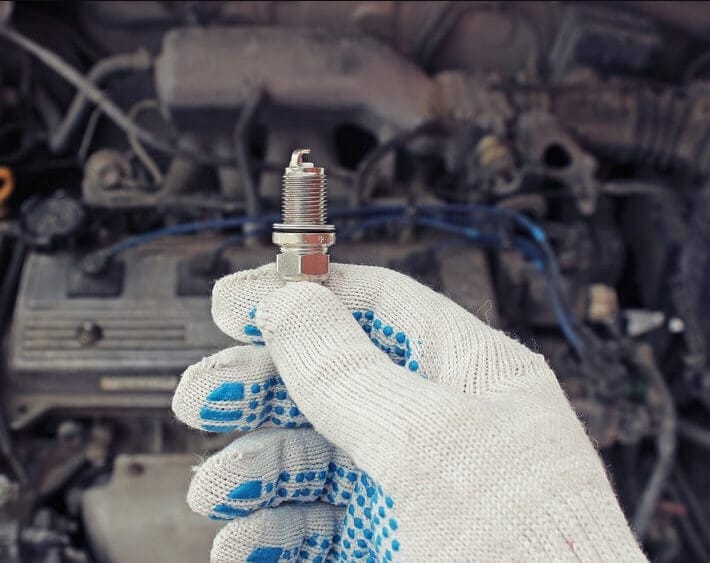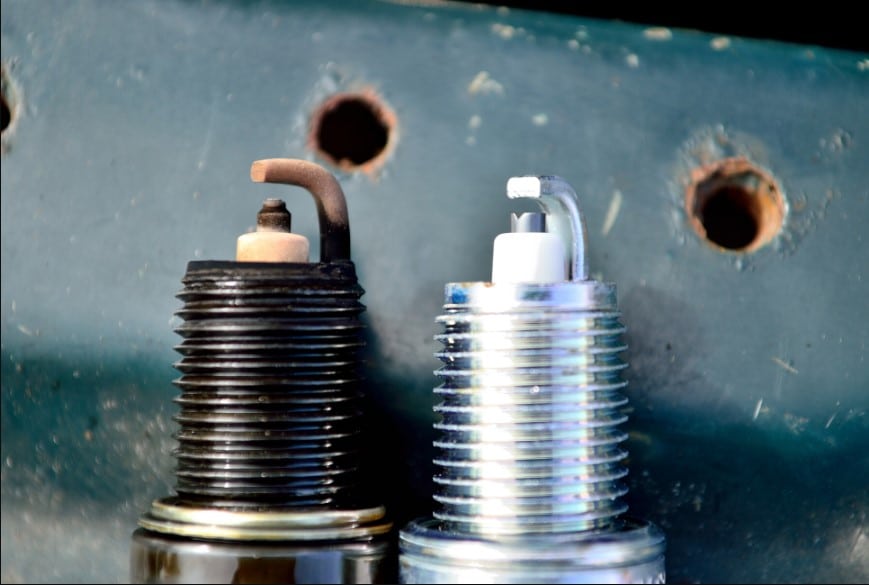Spark Plug Replacement Cost: How Much Does It Really Cost?

Spark Plug Replacement Cost
How Much Does A Spark Plug Replacement Cost? When it comes to your car, there are a lot of things that you can do to save money. But there are also a lot of maintenance tasks that you shouldn't try to skimp on, and replacing your spark plugs is one of them. Having fresh spark plugs is essential for keeping your car running smoothly, and if you don't replace them when they need it, you could end up doing some serious damage to your engine.

How Much Does A Spark Plug Replacement Cost? Replacing a spark plug can seem like a daunting task, but it's really not that difficult. The most important thing is to make sure you have the right tools for the job. In this blog post, we'll walk you through the process of replacing a spark plug and tell you how much it costs. We'll also provide some tips on how to save money on spark plug replacement. So whether you're a do-it-yourselfer or you need to take your car in for repair, read on for all the information you need.
What Are Spark Plugs?
Spark plugs are an essential part of any gasoline engine, serving as the interface between the piston and the combustion chamber. At their core, spark plugs are comprised of two primary components: a metal rod known as a "center electrode", and a ceramic insulator that separates this rod from the metal of the housing. This electrode is attached to a high-voltage electrical current that brings it in contact with a ground electrode, ultimately causing the center electrode to spark against the fuel/air mixture in the combustion chamber.

When this happens, an explosion is created that drives the piston downwards and powers the engine. Thanks to their simple but effective design, spark plugs have played a vital role in transportation for hundreds of years. Whether you're driving along a highway in a modern car or riding an old moped down a cobblestone street, your vehicle couldn't run without these critical components. So the next time you fire up your engine and head out on your journey, be sure to thank your spark plugs for getting you there!
Spark plug replacement cost
Depending on the make and model of your car, as well as the type of spark plugs it uses, the average cost of replacing all 4 spark plugs can range from $100 to $400. The cost of replacing a spark plug can vary greatly depending on a number of factors, including the make and model of your vehicle. For example, some cars may only require the replacement of one or two spark plugs at a time, while others may require all four plugs to be replaced. In addition, some cars may have difficult-to-access spark plug locations, which could increase labor costs for the mechanic doing the job.

Furthermore, if your car requires platinum or iridium spark plugs rather than traditional copper ones, you can expect to pay more for installation due to their higher cost. While there is no definitive answer as to what you can expect to pay for a spark plug replacement service, it is important that you ask your mechanic upfront so that you are prepared financially. Overall, whether your car has easy-to-reach spark plugs or behind locked panels in hard-to-access areas, the cost of replacing them will vary based on several factors. Nevertheless, ensuring that this critical system remains in good condition should be high on your list of automotive maintenance priorities.
How Does Spark Plug Work?
The spark plug is an essential component of the modern internal combustion engine, serving as a crucial junction between the cylinder and the ignition system. At its core, a spark plug consists of a central electrode surrounded by an insulating material. When a current flows from the ignition coil to this electrode, it ignites a mixture of fuel and air in the cylinder, generating a powerful spark that starts the combustion process.

In addition to creating this electrical arc, the spark plug has several other important functions. It provides shielding against high compression and heat from the combustion cycle, prevents blowouts from pressure differentials in the cylinder, and regulates incoming fuel so that it is timed properly with each stroke. As such, it is clear that the spark plug plays a critical role in ensuring efficient engine performance.
Symptoms Of Bad Spark Plugs
Are you experiencing any of the following problems with your car? Poor gas mileage, engine knocking or pinging, difficulty starting, decreased performance? If so, your spark plugs may be the culprit. In this post, we'll discuss the symptoms of bad spark plugs.
Poor gas mileage
Poor gas mileage is one of the most common symptoms of bad spark plugs. When a spark plug is worn out or damaged, it can disrupt the firing process in the engine, causing fuel to burn inefficiently. This can result in decreased engine power and reduced fuel efficiency, leading to significantly higher costs at the pump and lower overall performance for your vehicle. To prevent poor gas mileage caused by faulty spark plugs, it is important to regularly inspect and replace these critical components as necessary.
Many mechanics offer affordable testing services that can help you determine whether your spark plugs are in need of replacement. With regular maintenance and care, you can keep your car running smoothly and prevent unnecessary expenses due to poor gas mileage.
Engine knocking or pinging
Engine knocking or pinging is one of the most common symptoms of bad spark plugs. This type of condition is typically caused by worn-out spark plugs that are not able to generate a strong, consistent spark. As a result, fuel in the engine combusts too early or at an improper time, causing a metallic noise to be heard from the engine.
In addition to pinging sounds, you may also notice signs of decreased performance in your vehicles, such as reduced fuel efficiency and compromised acceleration. If you suspect that your engine knocking or pinging might be caused by faulty spark plugs, it is important to have your vehicle inspected by a qualified mechanic as soon as possible.
Difficulty starting
Difficulty starting is a common problem that can often be traced back to bad spark plugs. These components play an essential role in igniting fuel inside the engine and converting it into energy that can power the vehicle. If a plug is worn out or damaged in some way, it may not be able to create a sharp enough spark to properly ignite the fuel, resulting in a sluggish engine that struggles to get up and running.
Other symptoms of bad plugs may include increased emissions, decreased fuel economy, and more frequent misfires. If you are experiencing difficulty starting your vehicle, it is important to have your spark plugs checked and replaced as needed.

Decreased performance
Decreased performance is often one of the first signs that your vehicle's spark plugs need to be replaced. When a spark plug is not functioning properly, it can prevent the proper combustion of fuel in the cylinders of your engine, leading to reduced power and sluggish acceleration. Likewise, worn spark plugs can also cause your engine to misfire or have trouble idling smoothly.
Additionally, rough vibrations may indicate that there is an issue with the plug cables or wires, which can result in downtime if left unresolved. Ultimately, if you notice any signs of decreased performance in your car or another vehicle, it is important to have your spark plugs checked and replaced as soon as possible to avoid further complications down the road.
Check Engine Light
The check engine light is one of the most common symptoms of bad spark plugs. This light is a warning that there may be an issue with your car's ignition system, and it is usually caused by a faulty or misfunctioning spark plug. A damaged spark plug can disrupt the proper flow of electricity, which prevents the engine from running smoothly or efficiently. It can also cause damage to other components in the engine, such as the wiring or sensors.
In order to resolve this issue and prevent further damage, it is important to have a trained mechanic diagnose and repair the faulty spark plug as soon as possible. With careful attention and regular maintenance, you can make sure that your check engine light does not come back on.
Engine Misfiring
When an engine misfires, it often indicates that there is a problem with the spark plugs. These important components are responsible for igniting the air-fuel mixture in the combustion chamber, ensuring that the engine runs smoothly and efficiently. When a plug is defective or is no longer able to deliver enough spark, it can cause rough running and excess wear on other engine parts. In addition, an engine that continues to misfire might eventually damage pistons, valves, or connecting rods.
Therefore, keeping your vehicle's spark plugs in good condition is essential for maintaining optimal performance and preventing costly repair costs down the road. By regularly inspecting your plugs and changing them as needed, you can help avoid potential problems caused by engine misfiring.
Rough Idling
Rough idling is one of the most common symptoms of bad or worn spark plugs. When spark plugs are not functioning properly, they can cause the mixture of air and fuel to become unbalanced in the engine, resulting in rough or uneven idling. This symptom can also be caused by poor ignition timing or too little fuel, but replacing the spark plugs is typically an effective way to address this issue and restore smooth, reliable idling to your vehicle.
Other signs of bad spark plugs include sluggish acceleration and erratic performance, so if you notice any of these symptoms along with rough idling on your vehicle, it's likely time to replace your old plugs with new ones that will work efficiently and effectively.
If you are experiencing any of these symptoms, it is important to have your spark plugs checked by a qualified mechanic. Ignoring the problem can lead to further damage to your engine.
What are the benefits of replacing spark plugs?
It's no surprise that car parts wear down over time and need to be replaced. But what may come as a surprise are the benefits of replacing spark plugs. Spark plugs play an important role in your car's engine, and when they're not working properly, they can cause all sorts of problems. By replacing your spark plugs at regular intervals, you can keep your car running smoothly and avoid costly repairs. Here are just a few of the benefits of replacing spark plugs:
Improved Fuel Economy
Replacing worn or damaged spark plugs is a relatively simple task and can dramatically improve fuel economy. By ensuring optimal running conditions for your engine, you can not only reduce costs at the pump but also increase performance and drive more safely on the road. So if you're looking to achieve better results from your car without breaking the bank, consider investing in new spark plugs today!
Reduced Emissions
There are many benefits to replacing a car's spark plugs, including improved fuel efficiency and reduced emissions. One key advantage of replacing worn or damaged spark plugs is that the engine is able to run more efficiently, resulting in lower fuel costs over time. Additionally, many cars with aging plugs experience higher levels of pollution from their exhaust pipes, as much of the gasoline does not burn completely before it reaches the engine. By replacing these old or faulty plugs with high-quality new ones, you can help to reduce your car's impact on the environment and maintain good overall performance.

Better Performance
When it comes to getting better performance from your engine, one of the best steps you can take is to replace your spark plugs. Spark plugs play an important role in ensuring that your engine functions as efficiently and effectively as possible, and if they are worn or damaged, they can have a noticeable impact on your vehicle's overall performance.
By replacing worn or dirty spark plugs, you can help ensure that your engine runs smoothly and without hiccups. Additionally, properly functioning spark plugs reduce the risk of misfires and other damage to your engine, making this essential component a key component of improved car performance.
Longer Engine Life
There are many benefits that come with replacing old spark plugs, but perhaps the most important of these is longer engine life. When spark plugs are functioning properly, they create an even electrical current that ignites the fuel in the engine and keeps it running smoothly. However, when the electrodes on a spark plug become dirty or corroded, they can cause misfires and damage other components of the engine.
This not only reduces fuel efficiency and performance, but also increases wear and tear on parts like valves, pistons, and gaskets. Thus, by regularly replacing your car's spark plugs, you can extend the overall life of your engine and minimize costly repairs in the future.
How To Replace Spark Plugs?
The process of replacing spark plugs is fairly straightforward and generally does not require any special tools or expertise. In general, you will need to begin by accessing the area below the car's hood, where the engine is typically located. Next, you will need to locate the spark plugs and remove them from their holders. This can often be done by simply twisting or prying them out with a screwdriver.
Once the old plugs have been removed, you can install new ones in their place by following the manufacturer-provided instructions for your specific car model. It is important to ensure that each plug is properly tightened in order to ensure a complete seal and optimal spark quality. Finally, once all of the plugs have been replaced, your car should be ready to start up without any issues.

Spark plugs are a key component of any car engine, and their proper function is essential to optimal performance. If you're looking to improve your car's fuel efficiency, reduce emissions, or simply get better overall performance, replacing your old spark plugs is a great place to start. The process is relatively simple and can be done without any special tools or expertise. However, it is always best to consult your car's owner's manual or a qualified mechanic before undertaking any work on your car's engine. With just a few steps, you can help ensure that your car runs smoothly and efficiently for years to come.
How do you know when it’s time to change your spark plugs?
There are a number of signs that can indicate when it's time to change your spark plugs. One sign is a noticeable decrease in your car's fuel efficiency and performance. If you notice that your mileage has decreased significantly, or if your engine seems to be struggling to generate the power it once did, then it could be a sign that your spark plugs need replacement. Another sign is increased engine noise or rough running when you accelerate. Bad spark plugs may cause an increase in engine friction, which can result in more noise or roughness as you speed up.

Finally, misfiring can also signal that it's time for new spark plugs. Spark plugs that are worn out will give off weak sparks, which can cause a misfire under load and make the car harder to drive smoothly. So if any of these symptoms are present, be sure to get your spark plugs replaced as soon as possible for optimal performance and efficiency.
Can I replace my spark plugs myself?
Although many people are intimidated by the idea of replacing their own spark plugs, it is actually a relatively simple process that can be done by anyone with basic mechanical skills. The first step is to locate the ignition coil on your vehicle, which commonly sits near one or both of the spark plug housings. You will then need to remove this insulation cover and bring it to your local auto parts store so that you can purchase replacement spark plugs.

From there, you will simply have to follow the appropriate instruction manual for your specific vehicle, removing and installing each plug as needed. With just a little bit of patience and practice, you should be able to easily replace your own spark plugs and save yourself some money in the process.
How Often Should You Replace Spark Plugs?
The lifespan of a spark plug can vary depending on a number of different factors, including the make and model of your vehicle, the kind of fuel you use, and how often you drive. Generally speaking, however, it is recommended that you replace your spark plugs every 6-10 thousand miles. This will help to ensure that your engine is running efficiently and prevents damage from premature ignition failure or misfiring.

If you notice any signs that your spark plugs may be starting to wear out, such as diminished fuel economy or rough idling, it is best to have them inspected by a mechanic as soon as possible. By performing regular maintenance on your vehicle and replacing spark plugs when needed, you can help to keep your car in top condition for years to come.
What Happens If You Don’t Replace Spark Plugs?
Replacing your spark plugs at regular intervals is an important part of vehicle maintenance.
https://autoemc.net/blog/spark-plug-replacement-cost/
Nhận xét
Đăng nhận xét